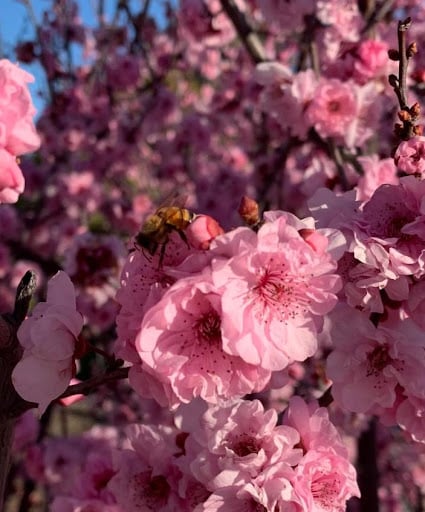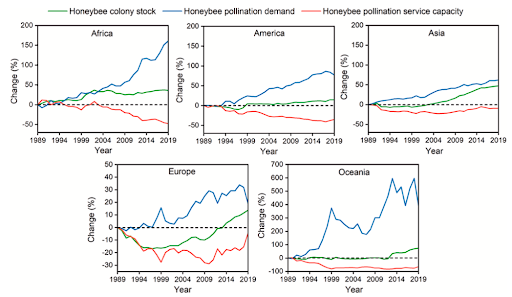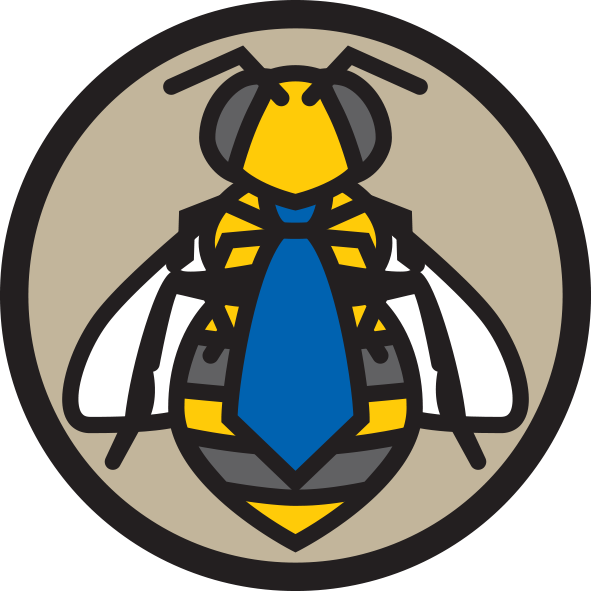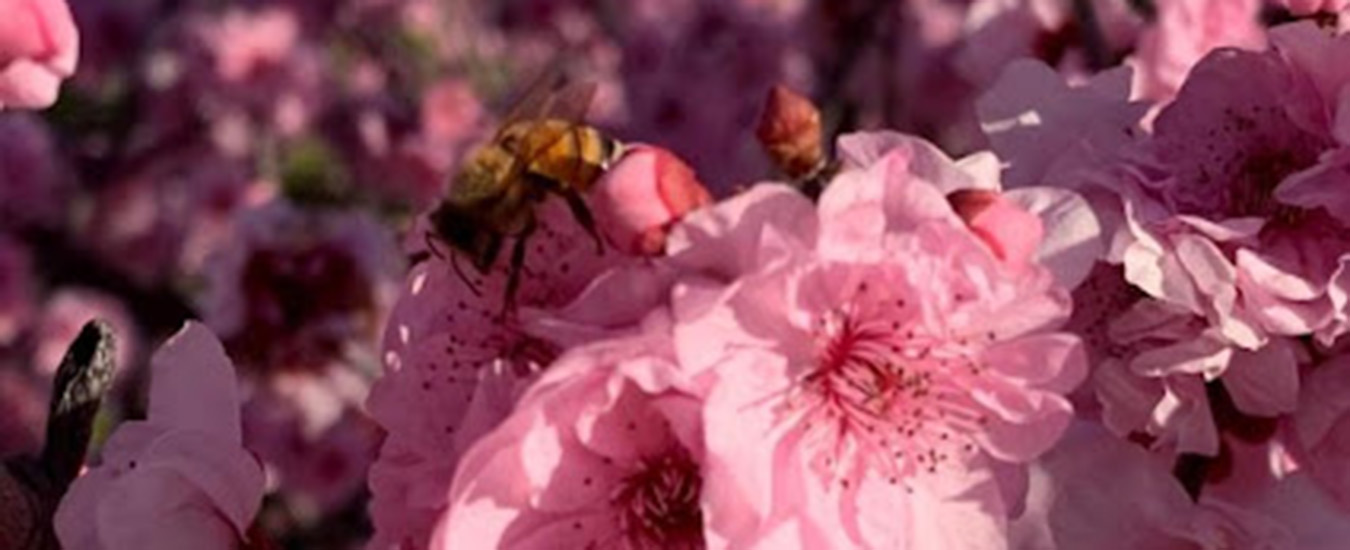Pollination is a key biological service that is especially important in maintaining global food supply as 75% of global crops require pollination via animals. Insects, and especially the honey bee are some of the most important pollinators worldwide. In Australia, honey bees are responsible for pollinating 65% of Australia’s agricultural crops.
Honey bees are being threatened due to multiple stressors including pests, diseases, climate change, expanding urbanisation and increased use of agricultural chemicals. The hardest hit are wild honey bees who have severely decreased in population whilst managed honey bee colonies have increased due to the expanding beekeeping industry. However, in the same period the demand for pollination services has escalated more than ever with increased agricultural production.

Honey bee foraging in August of 2021. Photo courtesy: Erica Mo
One of the reasons for increased pollination demand is the growing trend toward monoculture crops (vast areas of a single crop species) that rely on honey bee pollination. Soybean and canola alone made up 73% of global honey bee pollination demand in 2019. In some countries such as Argentina, Brazil and USA, soybean alone makes up >80% of honey bee pollination demand. The intensification of monoculture crop production generally decreases biodiversity, results in habitat loss and can potentially cause colony deterioration, thus having implications on wild pollinators, forming a negative feedback loop where pollination demands continue to increase whilst pollinators decrease.
As such, there has been increased reliance on managed honey bee stock as pollination agents. An article by Mashilingi et al. published in 2022 studied if the pollination service capacity of managed honey bees can provide sufficient pollination services to crops. The short answer is – no. As seen in Figure 1, though honey bee colony stock has increased between 1989-2019 across the 5 major continents, its service capacity is not able to match up to the demand required. In 2019, pollination demands are growing at a rate double that of managed honey bee colonies.

Figure 1. Changes in honey bee stock, pollination demand and pollination service capacity from 1989 – 2019 in 5 different continents. Figure from Mashilingi et al. (2022).
So what does this mean? Maintaining the status quo will not meet increasing agricultural demands globally. Pollination is an indispensable service needed especially for creating a sustained food industry for a growing population. Mashilingi et al. has emphasised the importance of saving wild pollinators to assist in the pollination task.
In honour of World Bee Day on the 20th May, there needs to be increased awareness about the importance and plight of honey bees. For a sustained future, coordinated international, regional and local efforts to save wild honey bees needs to be recognised and acted upon. There also needs to be greater emphasis on protecting all bee species.
Acknowledgements:
- Mashilingi S.K., H. Zhang, L.A. Garibaldi, J. An. (2022) Honeybees are far too insufficient to supply optimum pollination services in agricultural systems worldwide. Agriculture, Ecosystems & Environment 335: 108003.
- This article was peer-reviewed by Nadine Chapman and Elizabeth Frost.


